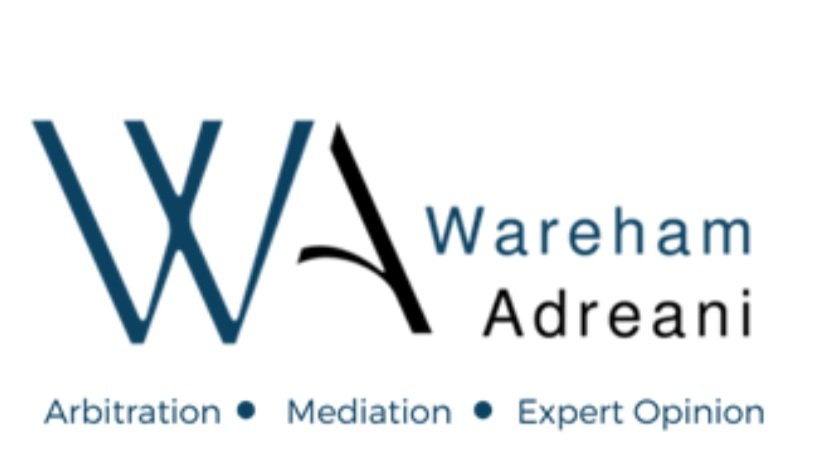Mediation- My Approach
Mediation
Selected Cases
-
AA v NHS: Appointed to mediate (NHS Resolution) Commissioned by the NHS to mediate a case currently in litigation regarding failed foot surgery. Partial liability already admitted, quantum was at issue. Issues successfully narrowed to allow parties to concentrate on possible approaches to resolution.
HB v NHS: Appointed by Respondent and Claimant (jointly - Ad Hoc) to mediate a claim of poor care following RTA and fracture failure to heal. Multiple heads of claim with quantum spanning multiple facets of projected disability. Parties settled on compensation and quantum 48 hours later.
BB v NHS: Appointed by Co-Mediate a claim of a delay in care leading to untimely death. Liability admitted. Issues of quantum and calculated life span against projected impact of concomitant disability. Parties settled on compensation and quantum.
Surgical College (Vic) v Surgical College (WA): Appointed by parties to mediate a long (20 year) dispute, with 3 failed attempts to merge. Heads of issues related to Personas, reserved Positions on the Board, Educational process. Mediation over 2 day period with multiple representations. Merger went ahead following 2 failed MOU attempts six months later. HF (NHS) Hospital. Inter-departmental conflict mediation with 2 HoD’s. Mediation (half day) involved discussion on case mix, allocation of operating space and resources and training experiences. Solutions and pathways created with disputants agreeing resource sharing. Consultant Surgeons x2 v CHG (Independent Hospital). Mediation of grievance, unfair restrictive practice and overly punitive response to settled complaint. Mediation involved reality testing, grievance development and reframing. Parties settled on agreed pathways of care and restoration of practice rights. University - WA: Employee workplace mediation. Senior staff members in conflict over allegations of bullying and harassment, unfair treatment and complaints against Fair-work Australia principles. Evaluative mediation and outcomes over a half day mediation.
-
Surgical College (Vic) v Surgical College (WA): Appointed by parties to mediate a long (20 year) dispute, with 3 failed attempts to merge. Heads of issues related to Personas, reserved Positions on the Board, Educational process. Mediation over 2 day period with multiple representations. Merger went ahead following 2 failed MOU attempts six months later.
HF (NHS) Hospital. Inter-departmental conflict mediation with 2 HoD’s. Mediation (half day) involved discussion on case mix, allocation of operating space and resources and training experiences. Solutions and pathways created with disputants agreeing resource sharing.
Consultant Surgeons x2 v CHG (Independent Hospital). Mediation of grievance, unfair restrictive practice and overly punitive response to settled complaint. Mediation involved reality testing, grievance development and reframing. Parties settled on agreed pathways of care and restoration of practice rights.
University - WA: Employee workplace mediation. Senior staff members in conflict over allegations of bullying and harassment, unfair treatment and complaints against Fair-work Australia principles. Evaluative mediation and outcomes over a half day mediation.
Mediation is an effective dispute resolution mechanism commonly used in the medical health and life sciences industry. It offers several advantages over traditional court proceedings, particularly in light of the specific challenges and sensitivities of this sector.
Mediation in Medical Health and Life Sciences has a number of advantages in that it is a confidential process, ensuring that sensitive information related to patient data, research findings, and commercial strategies remains protected. This confidentiality is crucial in the life sciences industry, where safeguarding intellectual property and maintaining trust with patients and partners are paramount.
Mediation maintains relationships in that it fosters a collaborative and non-adversarial environment which encourages parties to maintain relationships and preserve partnerships. This can be particularly important in the medical sector, where ongoing collaborations and the exchange of confidential information are often essential.
Mediation tends to focus on Interests rather than positions. It addresses underlying interests of the parties rather than complex legal arguments and positions. This approach encourages a more constructive and mutually beneficial dialogue, leading to more creative and lasting solutions.
The types of disputes suited for mediation may include:
Patient complaints or negligence claims: Mediation can effectively resolve disputes arising from patient complaints, medical errors, or misdiagnosis. By facilitating open communication and understanding, mediation can help patients and healthcare providers reach a mutually acceptable resolution.
Research and Collaboration Agreements: Mediation is well-suited to address disagreements related to research collaborations, including intellectual property ownership, data sharing, and financial arrangements. By fostering cooperation and compromise, mediation can preserve valuable partnerships and ensure continued research progress.
Distribution Agreements and Marketing Disputes: Mediation can be effective in resolving disputes arising from distribution agreements for medical products or services. By addressing concerns about pricing, marketing strategies, or product distribution, mediation can maintain business relationships and protect market opportunities.
Employment Issues: Mediation can address workplace disputes between healthcare providers, administrative staff, and management. By fostering open communication and addressing underlying concerns, mediation can help resolve issues effectively and maintain a productive work environment.
Institutional Disputes and Regulatory Challenges: Mediation can be used to resolve internal disputes within healthcare institutions or between institutions and regulatory bodies. By facilitating constructive dialogue and exploring potential solutions, mediation can help address complex issues and maintain operational efficiency.
My approach is both ‘facilitative and explorative’ where parties wish to maintain control. My background also allows a more ‘evaluative’ approach of interests and requirements should the parties require more direction with regard to their outcome.


